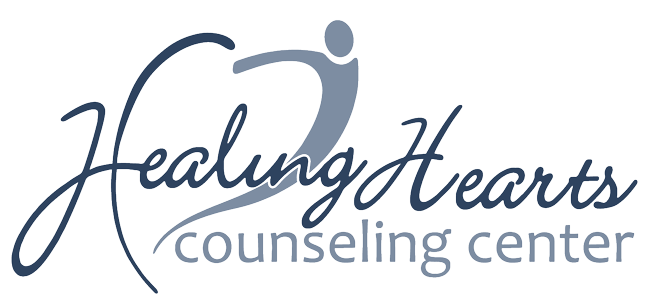Healing Hearts Counseling Center
680 Park Avenue West
Mansfield, OH 44906
1-855-4-HOPE4U
9am-5pm Monday-Friday
CLIENT RIGHTS POLICY AND GRIEVANCE PROCEDURE
As an agency certified by the Ohio Department of Mental Health and Addiction Services, people who use or apply for or are treated through our services are protected through a set of rights and procedures through Ohio Administrative Code, 5122-26-18, effective April 1, 2016.
All staff persons of the agency are familiar with all specific client rights and the grievance procedure and can explain the client rights to a person who receives services from this agency, However, there is a specific person called the Client Advocate who oversees the grievance process. It is that person’s responsibility to accept and oversee the process of any grievance filed by a client or other person or agency on behalf of a client. At Healing Hearts, the Client Advocate is listed above.
When a person is new to the agency, they will have their client rights explained to him or her in a manner appropriate for the client’s understanding. Such explanation of rights will be documented in the client ICR. Those rights will again be examined annually. The rights are also posted in a conspicuous, public area of each building operated by the agency and anyone may request a copy of them.
In a crisis or emergency, the person using or applying for the services shall be verbally advised of at least the immediate pertinent rights, such as the right to consent to or to refuse the offered treatment and the consequences of that agreement or refusal. Full verbal explanation of the client rights policy may be delayed to a subsequent meeting.
The following definitions may help in understanding the grievance process. They are in addition to or supersede the definitions in rule 5122-24-01 of The Ohio Administrative Code.
- “Client advocate” means the individual designated by a provider with responsibility for ensuring compliance with the client rights and grievance procedure rule as implemented within each provider or board and shall have the same meaning as Client Advocate or client rights specialist.
- “Grievance” means a written complaint initiated either verbally or in writing by a client or by any other person or provider on behalf of a client regarding denial or abuse of any client’s rights.
- “Reasonable” means a standard for what is fair and appropriate under usual and ordinary circumstances.
The Grievance Procedure
The grievance procedure of Healing Hearts applies to all people receiving services as described in the Client Rights Policy. At any point if the griever needs assistance with their grievance, that assistance will be available to them. All staff can assist a person with the filing of a grievance if necessary.
There are a specific set of rights afforded to each person who participates in or applies for services at any agency certified by the Ohio Department of Mental Health and Addiction Services.
Client Rights (Community)
Except for clients receiving forensic evaluation service as defined in rule 5122-29-07 of the Administrative Code, from a certified forensic center, each client has all of the following rights as listed in paragraphs (E)(1) to (E)(21) of this rule.
- The right to be treated with consideration and respect for personal dignity, autonomy and privacy;
- The right to reasonable protection from physical, sexual or emotional abuse, neglect & inhumane treatment;
- The right to receive services in the least restrictive, feasible environment;
- The right to participate in any appropriate and available service that is consistent with an individual service plan (ISP), regardless of the refusal of any other service, unless that service is a necessity for clear treatment reasons and requires the person’s participation;
- The right to give informed consent to or to refuse any service, treatment or therapy, including medication absent an emergency;
- The right to participate in the development, review and revision of one’s own ISP and receive a copy of it;
- The right to freedom from unnecessary or excessive medication, and to be free from restraint or seclusion unless there is immediate risk of physical harm to self or others;
- The right to be informed and the right to refuse any unusual or hazardous treatment procedures;
- The right to be advised and the right to refuse observation by others and by techniques such as one-way vision mirrors, tape recorders, video recorders, television, movies, photographs or other audio and visual technology. This right does not prohibit an agency from using closed-circuit monitoring to observe seclusion rooms or common areas, which does not include bathrooms or sleeping areas;
- The right to confidentiality of communications and personal identifying information within the limitations and requirements for disclosure of client information under state and federal laws and regulations;
- The right to have access to one’s own client record unless access to certain information is restricted for clear treatment reasons. If access is restricted, the treatment plan shall include the reason for the restriction, a goal to remove the restriction, and the treatment being offered to remove the restriction;
- The right to be informed a reasonable amount of time in advance of the reason for terminating participation in a service, and to be provided a referral, unless the service is unavailable or not necessary;
- The right to be informed of the reason for denial of a service;
- The right not to be discriminated against for receiving services based on race, ethnicity, age, color, religion, gender, national origin, sexual orientation, physical or mental handicap, developmental disability, genetic information, human immunodeficiency virus status, or in any manner prohibited by local, state or federal laws;
- The right to know the cost of services;
- The right to be verbally informed of all client rights, and to receive a written copy upon request;
- The right to exercise one’s own rights without reprisal, except that no right extends so far as to supersede health and safety considerations;
- The right to file a grievance;
- The right to have oral and written instructions concerning the procedure for filing a grievance, and to assistance in filing a grievance if requested;
- The right to be informed of one’s own condition; and,
- The right to consult with an independent treatment specialist or legal counsel at one’s own expense.
To File a Grievance
- The griever contacts the Client Advocate or any other staff person to assist him or her in writing the grievance. Staff or the Client Advocate can be contacted at any one of the Healing Hearts locations listed at the top of this page. Every effort will be made toward prompt accessibility of the Client Advocate.
- The Client Advocate will explain how the grievance will be handled. The grievance must be submitted in writing. If the client needs assistance writing the grievance, the Client Advocate will take the verbal grievance and then transpose it into written text. The grievance must be dated and signed by the client unless the grievance is being filed on behalf of the client. The grievance should include an attestation by the client advocate that the grievance is true and accurate. The grievance must include, if available, the date, approximate time, description of the incident and names of individuals involved in the incident or situation being grieved.
- The grievance will be resolved within twenty working days from the time of the filing of the grievance.
- The client has the option to file a grievance with outside organizations, that include, but are not limited to, the following:
- Mental Health Recovery Boards
- Richland County MHRB – 141 N Walnut Street, Mansfield, Ohio 44902 – 419-522-7491
- Franklin County MHRB – 447 East Broad Street, Columbus, Ohio 43215 – 614-224-1059
- Ohio Department of Mental Health and Addiction Services – 30 East Broad Street, 36th Floor, Columbus, Ohio 43215 – 614-466-2596
- Disability Rights Ohio – 200 Civic Center Drive, Ste 300, Columbus, Ohio 43215 – 614-466-7264
- The US Department of Health and Human Services – Regional Office – 233 N Michigan Ave, Ste 1300, Chicago, Illinois 60601 – 312-353-1385
- Mental Health Recovery Boards
A written acknowledgment of receipt of the grievance will be provided to each grievant. Such acknowledgment shall be provided within three business days from receipt of the grievance. The written acknowledgment shall include, but not be limited to, the following:
Date grievance was received;
Summary of grievance;
Overview of grievance investigation process;
Timetable for completion of investigation and notification of resolution; and,
Treatment provider contact name, address and telephone number. When the grievance is complete, there will be a written explanation of the resolution, or to the griever if other than the client with the client’s permission.
The grievance procedure is posted at Healing Hearts Counseling Center locations.
A written copy of the grievance procedure is available to anyone upon request by contacting Healing Hearts at the address on the front. 9am to 5pm Monday through Friday.
When the Client Advocate is the subject of the grievance, please contact Maja Anderson, Owner, at Healing Hearts in Mansfield, Ohio.
Each staff person, including administrative, clerical and support staff has a clearly understood, specified, continuing responsibility to immediately advise any client or any other person who is articulating a concern, complaint or grievance, about the name and availability of the agency’s Client Advocate and the complainant’s right to file a grievance.
The agency shall provide for the Client Advocate to take all necessary steps to assure compliance with the grievance procedure.
All grievance information, including: copy of grievance, documentation reflecting the grievance outcome, documentation of any extenuating circumstances that extended the investigation period and other supporting documentation will be retained for a minimum of 2 years after resolution of the grievance.
Revised September 2020
Please Note
Confidentiality cannot be guaranteed when communicating by email, text, or cell phone. We cannot guarantee a prompt response by email because we may not check email regularly. We attempt to return phone calls within 24 hours. For immediate concerns or for an emergency, please contact your nearest hospital or dial 911. The crisis hotline in Richland County is 419-522-4357.
Other Center Information

